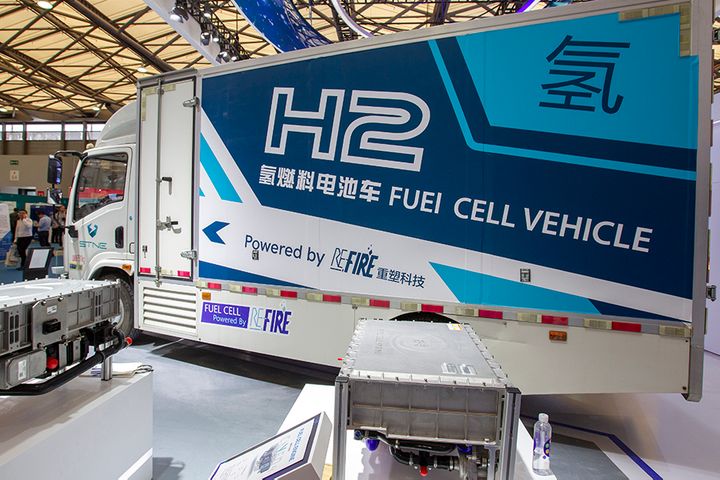 China's Trendy Hydrogen Is Three Times More Expensive Than Gasoline
China's Trendy Hydrogen Is Three Times More Expensive Than Gasoline(Yicai Global) Sept. 20 -- Hydrogen fuel is still about three times more expensive than gasoline in China despite the government's push toward the zero-emission fuel.
China's 20-plus hydrogen stations sell the emerging fuel for more than CNY60 (USD8.50) per kilogram, which means that these types of vehicles use at least CNY180 (USD25.40) worth of hydrogen in a journey of 100 kms. That is about 50 percent more than the cost of making the same journey by a diesel car.
China, the world's largest new energy vehicle market, has been defiantly optimistic about the outlook on hydrogen. In the first half of this year, the central government and more than 20 cities issued preferential policies to increase the proportion of hydrogen in the nation's energy mix.
For buyers, this means subsidies. A hydrogen bus driver in southern China's Foshan told Yicai Global that if the government did not chip in, the transport firm would lose money.
Currently, there is no feasible way to reduce the cost of hydrogen, Song Qiuling, a senior official from a bureau under the finance ministry, said in a statement last month. The technology lacks breakthroughs and the related infrastructure, management, and regulation are all insufficient, Song added.
There are two main ways of creating hydrogen. One of them demands fossil fuels -- which defeats the purpose of the clean-burning alternative -- and another one is electrolysis which means using electricity to break water into oxygen and hydrogen.
In electrolysis, the cost of electricity makes up almost 80 percent of the total so in order to make this method economical the cost of electric power systems should fall by one half, Wang Xiaochen from the State Grid Energy Research Institute said in a report earlier. That should happen in 2050, the report added.
Editor: Emmi Laine